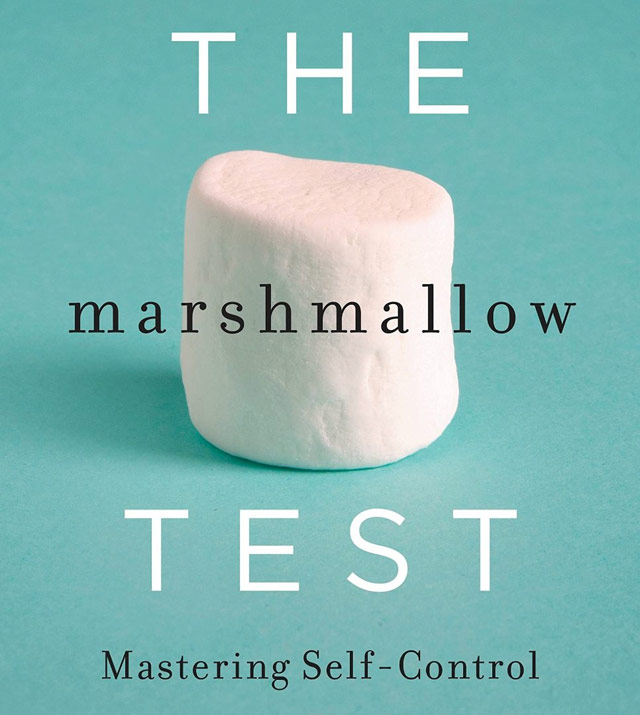The Marshmallow Test, the book
The Marshmallow Test was developed by psychologist Walter Mischel to study self-control and delayed gratification. From a piece about Mischel in the New Yorker:
Once Mischel began analyzing the results, he noticed that low delayers, the children who rang the bell quickly, seemed more likely to have behavioral problems, both in school and at home. They got lower S.A.T. scores. They struggled in stressful situations, often had trouble paying attention, and found it difficult to maintain friendships. The child who could wait fifteen minutes had an S.A.T. score that was, on average, two hundred and ten points higher than that of the kid who could wait only thirty seconds.
Mischel has written a book about the test, its findings, and learning greater self-control: The Marshmallow Test: Mastering Self-Control.
The world’s leading expert on self-control, Walter Mischel has proven that the ability to delay gratification is critical for a successful life, predicting higher SAT scores, better social and cognitive functioning, a healthier lifestyle and a greater sense of self-worth. But is willpower prewired, or can it be taught?
In The Marshmallow Test, Mischel explains how self-control can be mastered and applied to challenges in everyday life — from weight control to quitting smoking, overcoming heartbreak, making major decisions, and planning for retirement. With profound implications for the choices we make in parenting, education, public policy and self-care, The Marshmallow Test will change the way you think about who we are and what we can be.
Here’s a video of the test in action:
Update: A recent study showed that the environment in which the test is performed is important.
Now a new study demonstrates that being able to delay gratification is influenced as much by the environment as by innate ability. Children who experienced reliable interactions immediately before the marshmallow task waited on average four times longer — 12 versus three minutes — than youngsters in similar but unreliable situations.
(thx, maggie & adam)






Stay Connected